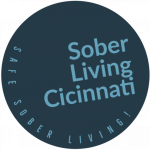Recovering from addiction is not something anyone should go through alone. Support from others plays a big role in helping people stay strong, especially during tough times. Whether you’re just beginning your recovery or have been sober for a while, finding the right kind of community support can make all the difference. In this article, we’ll explore where to look for support and what you can expect when you reach out.
Why Community Support Matters
Addiction can feel isolating. Many people in recovery struggle with guilt, shame, or the fear of being judged. Having a supportive group can help ease those feelings. It reminds you that you’re not alone and that others understand what you’re going through.
Support groups and communities also provide encouragement and accountability. They create a safe space to talk about challenges and celebrate victories—no matter how small.
Different Types of Community Support
There are many types of support groups and recovery communities. The one that works best for you depends on your needs and preferences. Here are some common options:
12-Step Programs
Groups like Alcoholics Anonymous (AA) and Narcotics Anonymous (NA) follow a 12-step model. These meetings are free and open to anyone who wants to stop using substances. They are found all over the world and offer both in-person and virtual meetings.
Faith-Based Groups
Some people find strength in support groups connected to their religious or spiritual beliefs. These groups may include prayer, scripture, and spiritual discussions along with recovery tools.
Non-12-Step Groups
Not everyone connects with the 12-step format. Programs like SMART Recovery, Refuge Recovery, or LifeRing offer alternatives that focus more on self-reliance, mindfulness, or science-based strategies.
Peer Recovery Coaches
These are people who have lived through addiction and are trained to help others through their recovery. They offer one-on-one support and help you stay focused on your goals.
Online Forums and Social Media
Some people prefer online support because it’s easier to access and more anonymous. Websites, chat rooms, and Facebook groups can offer support at any hour of the day or night.
Where to Start Looking
If you’re not sure where to find support, here are some good places to begin:
- Local treatment centers: Many have aftercare programs or can connect you to local meetings.
- Hospitals or community clinics: These often have information about local recovery resources.
- Churches and community centers: Some offer free or low-cost support groups.
- Libraries or city websites: These may list recovery events or support groups in your area.
- Hotlines and helplines: Calling a national addiction helpline can point you to services near you.
You don’t have to find the perfect group right away. It’s okay to try a few before deciding what feels right.
What to Expect in a Support Group
The first time you attend a group, you may feel nervous or unsure. That’s completely normal. Most support groups are welcoming and non-judgmental. People understand how hard it is to take that first step.
Here’s what typically happens:
- Introductions: You may be invited to share your name and a little about your story, but sharing is always optional.
- Group sharing: Others will talk about their experiences, struggles, or successes.
- Confidentiality: What’s said in the group usually stays in the group.
- Support and advice: Members often offer advice based on their own experience.
Most people leave feeling more hopeful, heard, and encouraged to keep going.
Building Meaningful Connections
Over time, attending support groups helps you build real, caring relationships. These new connections can replace unhealthy ones from the past. You may even find a sponsor, mentor, or close friend who becomes an important part of your recovery journey.
Keep in mind: recovery is not just about quitting a substance—it’s about building a better, healthier life. Having a strong community helps you do that.
When You Need Extra Help
Sometimes, community support isn’t enough on its own. If you’re dealing with mental health challenges, trauma, or repeated relapses, you may also need professional help. This could include counseling, medication, or inpatient treatment.
That’s okay—many people benefit from a mix of therapy and community support. There’s no shame in needing more help. In fact, reaching out shows strength and commitment to your recovery.
Final Thoughts
Finding support in the community is one of the most powerful tools in recovery. Whether it’s a 12-step group, an online forum, or a one-on-one peer relationship, these connections can keep you grounded and give you hope. You don’t have to do it all alone. Support is out there—you just have to take that first step. Call us today at 855-675-1892.













